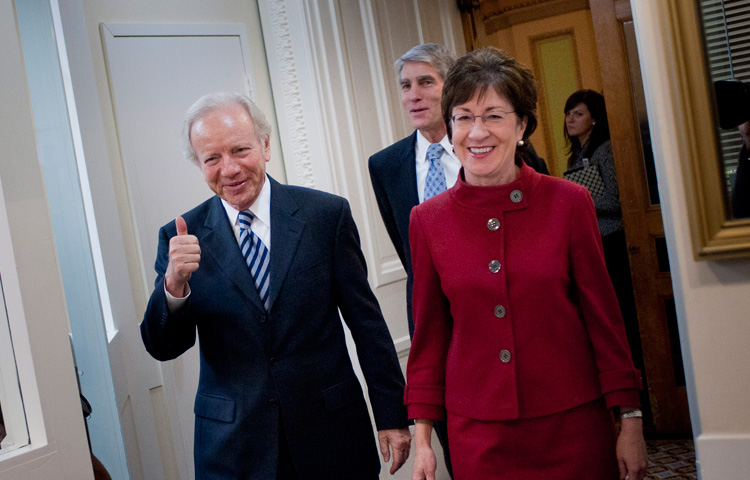Sen. Joe Lieberman (I-CT), who helped shepherd through today’s Senate repeal of Don’t Ask, Don’t Tell, told reporters after the final vote this afternoon that ending the military’s ban on openly gay servicemembers is a big step for LGBT rights.
“To me, it is a step forward to a larger societal acceptance [of gay rights,]” Lieberman said. “This is a civil rights piece of legislation in my opinion.”
“What we’re saying here is, in America, regardless of your race or religion or nationality or gender or sexual orientation, if you play by the rules and work hard there’s not limit to where you can go,” he added.
[TPM SLIDESHOW: It’s Over: Senate Repeals Don’t Ask, Don’t Tell]
Lieberman was joined at the presser by Sens. Susan Collins (R-ME), Mark Udall (D-CO) and Kirsten Gillibrand (D-NY). All four voted for repeal today, and Collins was the lead Republican sponsor on the standalone repeal legislation that rescued DADT repeal after the GOP killed it by refusing to end debate on a military spending bill last week.
Seven other Republicans joined Collins in voting for repeal today, leaving the vast majority of the caucus on the record in favor of keeping in the closet gays and lesbians who serve. Collins said that the large number of Republicans who voted no shows that gay rights are still controversial with some. But, she said, that’s changing.
“It takes time for people to change long held beliefs,” Collins said. “I believe if we held this vote five years ago it would not have passed. Seventeen years ago, it was a Democratic president who signed into law Don’t Ask, Don’t Tell.”
“So I think our society is changing,” Collins said. “And that it’s important to remember who was in charge when this policy was enacted.”
Sen. Gillibrand echoed Lieberman, calling the bill one of the more important the Senate’s passed in a while.
“This is about equal rights, equal justice and saying to the American people, ‘if you want to serve this country, if you want to give your life for this country, you may do so regardless of who you love,'” she said. “This is one of the most fundamental pieces of legislation this Congress could come together to pass.”









